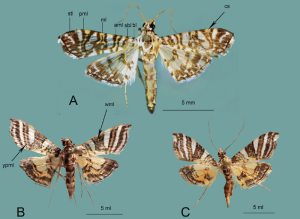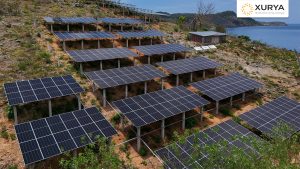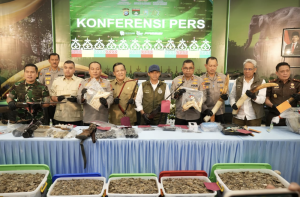Jakarta – The Energy Shift Institute (ESI) highlighted a fundamental flaw in Indonesia’s Taxonomy of Sustainable Finance (TKBI), which they considered unable to distinguish between truly sustainable industrial activities and those that merely convey decarbonisation intentions without concrete evidence. The research institute believes that this policy has the potential to mislead investment and hinder the transition to a low-carbon economy.
“We see that this taxonomy tends to be permissive towards carbon-intensive industries, such as mining and coal-fired power plants, without any obligation for concrete evidence of emission reduction,” said Hans Sutikno, ESI researcher and author of the report “Two Mining Powerhouses, Two Different Standards”, Monday, 28 July.
In the report, ESI compares Indonesia’s approach with that of Australia, two of the world’s largest coal exporters that are competing to become the centre of the global green industry. Australia applies much stricter standards, labelling the mining and minerals industry as transitioning only if it has a science-based decarbonisation strategy consistent with a scenario of limiting global warming to a maximum of 1.5°C.
Indonesia, on the other hand, is considered too lenient. Industrial projects that still rely on coal-fired power plants, for example, can still be categorised as transition activities, simply by complying with domestic regulations and submitting a general decarbonisation commitment.
“Indonesia’s taxonomy values intent, not impact. There is no requirement to show phased emission reductions, or verifiable evidence that emissions are actually falling,” Hans added.
Investors need certainty
This criticism comes amid growing global attention to green investment standards. International investors, particularly those with an ESG (environmental, social, governance) orientation, are now demanding transparency and accountability in energy transition schemes and industrial decarbonisation.
According to ESI Managing Director Christina Ng, the ongoing taxonomy revision process should be utilised to improve policy direction. She emphasised that the taxonomy is not just a technical instrument, but a strategic signal that will determine global investors’ confidence in the direction of Indonesia’s transition.
“The credibility of Indonesia’s green industry vision depends on the strength of this taxonomy. If it remains loose, we will miss out on investment opportunities that truly support a low-carbon economy,” Christina emphasised.
The sustainable finance taxonomy is an official classification system that categorises economic activities into three categories: green (sustainable), transitional (toward sustainability), and unsustainable. This scheme serves as a reference for investors and policymakers to determine the direction of funding and incentivise low-emission economic development.
But in the current TKBI, there are still loopholes that allow activities with high emissions intensity, without a credible transition roadmap, to be labelled green or transitional. It is feared that this will prolong Indonesia’s dependence on coal, just as other countries are starting to move away from it.
“If the government is serious about making Indonesia a global green industry centre, especially in the critical minerals and electric vehicle battery sectors, then this taxonomy must be aligned with scientific standards and global climate targets,” Hans concluded. (Hartatik)
Banner photo: Image generated by OpenAI’s DALL·E via ChatGPT (2024)















